Latest News
Worldwide Industry for Online Gambling to 2024 – Surging Internet Users Present Opportunities
The “Global Online Gambling Market: Insights & Forecast with Potential Impact of COVID-19 (2020-2024)” report has been added to ResearchAndMarkets.com’s offering.
The global online gambling market is expected to reach US$90.36 billion in 2024, growing at a CAGR 11.50% during the period spanning 2020-2024. The growth in the market was supported by factors like rising internet users, increasing use of smartphones, rising economic growth, surging demand for sports and rising adoption of blockchain technology.
The online gambling market is expected to experience certain trends like increasing demand for smartwatch devices, rising adoption of virtual reality and increasing digitalization. The market is also expected to face certain challenges such as a surge in frauds, addiction to online gambling and physical & psychological effects of online gambling.
The global online gambling market by type can be segmented as follows: sports betting, casinos, poker and bingo. In 2019, the highest share of the market was held by sports betting, followed by casinos, poker and bingo. The global online gambling market by device can be segmented as follows: mobile, desktop and tab. In 2019, the dominant share of the market was held by mobile, followed by desktop and tab. The market by regulation can be segmented as follows: unregulated, regulated and regulating. In 2019, the highest share of the market was held by unregulated, followed by regulated.
In 2019, the dominant share of the market was held by Europe, followed by Asia Pacific, North America and the Middle East. Growth in the Europe market was supported by the rising use of smartphones and increasing digitalization.
Scope of the report:
- The report provides a comprehensive analysis of the global online gambling market with the potential impact of COVID-19.
- The major regional markets i.e. Europe, Asia Pacific, North America & Middle East have been analyzed along with country analysis of the UK, Spain, Italy and the US.
- The market dynamics such as growth drivers, market trends and challenges are analyzed in-depth.
- The competitive landscape of the market, along with the company profiles of leading players (William Hill, GVC Holdings, Flutter Entertainment, Kindred Group, 888 Holdings and Betsson) are also presented in detail.
Key Topics Covered:
1. Market Overview
2. Impact of COVID-19
2.1 Impact on Global Economy
2.2 Shutdown of Land-Based Casinos
2.3 Global Prevalence of COVID-19
2.4 Impact on Online Traffic
3. Market Analysis
3.1 Global Online Gambling Market by Value
3.2 Global Online Gambling Market Forecast by Value
3.3 Global Online Gambling Market by Type
3.3.1 Global Online Sports Betting Market by Value
3.3.2 Global Online Sports Betting Market Forecast by Value
3.3.3 Global Online Sports Betting Market by Type
3.3.4 Global Online Casino Market by Value
3.3.5 Global Online Casino Market Forecast by Value
3.3.6 Global Online Poker Market by Value
3.3.7 Global Online Poker Market Forecast by Value
3.3.8 Global Online Bingo Market by Value
3.3.9 Global Online Bingo Market Forecast by Value
3.4 Global Online Gambling Market by Device
3.4.1 Global Mobile Online Gambling Market Forecast by Value
3.4.2 Global Desktop Online Gambling Market Forecast by Value
3.4.3 Global Tab Online Gambling Market Forecast by Value
3.5 Global Online Gambling Market by Regulation
3.6 Global Online Gambling Market by Region
4. Regional Market
4.1 Europe
4.1.1 Europe Online Gambling Market by Value
4.1.2 Europe Online Gambling Market Forecast by Value
4.1.3 Europe Online Gambling Market by Type
4.1.4 Europe Online Gambling Market by Device
4.1.5 UK Online Gambling Market by Value
4.1.6 UK Online Gambling Market Forecast by Value
4.1.7 Spain Online Gambling Market by Value
4.1.8 Spain Online Gambling Market Forecast by Value
4.1.9 Italy Online Gambling Market by Value
4.1.10 Italy Online Gambling Market Forecast by Value
4.2 Asia Pacific
4.2.1 Asia Pacific Online Gambling Market by Value
4.2.2 Asia Pacific Online Gambling Market Forecast by Value
4.3 North America
4.3.1 North America Online Gambling Market by Value
4.3.2 North America Online Gambling Market Forecast by Value
4.3.3 The US Online Gambling Market by Value
4.3.4 The US Online Gambling Market Forecast by Value
4.3.5 The US Online Gambling Market by Type
4.3.6 The US Online Gambling Market Value by Type
4.3.7 The US Online Gambling Market Value Forecast by Type
4.4 Middle East
4.4.1 Middle East Online Gambling Market by Value
4.4.2 Middle East Online Gambling Market Forecast by Value
4.5 ROW
4.5.1 ROW Online Gambling Market by Value
4.5.2 ROW Online Gambling Market Forecast by Value
5. Market Dynamics
5.1 Growth Drivers
5.1.1 Surging Internet Users
5.1.2 Upsurge in Smartphone Users
5.1.3 Rising GDP Per Capita
5.1.4 Increasing Demand for Sports
5.1.5 Growing Adoption of Blockchain Technology
5.1.6 Declining Preferences for Land-Based Casinos
5.2 Key Trends & Developments
5.2.1 Surging Demand for Smartwatch Devices
5.2.2 Virtual Reality (VR)
5.2.3 Digitalization
5.2.4 Artificial Intelligence & Machine Learning
5.3 Challenges
5.3.1 Upsurge in Frauds
5.3.2 Online Gambling Addiction
5.3.3 Physical & Psychological Effects
6. Competitive Landscape
6.1 Global Market
6.1.1 Revenue Comparison- Key Players
6.1.2 Market Capitalization Comparison- Key Players
6.1.3 Global Online Gambling Market Share – Key Players
6.2 UK Market
6.2.1 UK Online Gambling Market Share – Key Players
6.2.2 UK Online Casino Gaming Market Share – Key Players
6.2.3 Australia Online Gambling Market Share – Key Players
6.3 Europe Market
6.3.1 Italy Online Gambling Market Share – Key Players
6.3.2 Spain Online Gambling Market Share – Key Players
7. Company Profiles
7.1 William Hill
7.1.1 Business Overview
7.1.2 Financial Overview
7.1.3 Business Strategies
7.2 GVC Holdings
7.2.1 Business Overview
7.2.2 Financial Overview
7.2.3 Business Strategies
7.3 Flutter Entertainment
7.3.1 Business Overview
7.3.2 Financial Overview
7.3.3 Business Strategies
7.4 Kindred Group
7.4.1 Business Overview
7.4.2 Financial Overview
7.4.3 Business Strategies
7.5 888 Holdings
7.5.1 Business Overview
7.5.2 Financial Overview
7.5.3 Business Strategies
7.6 Betsson AB
7.6.1 Business Overview
7.6.2 Financial Overview
7.6.3 Business Strategies
Latest News
Groove Technologies and BetOnGames Forge Strategic Partnership

In a landmark move, platform and aggregator Groove Technologies has announced a strategic partnership with BetOnGames, the RNG game provider arm of BETCORE. This collaboration brings together Groove’s enterprise-grade platform, boasting over 15,000 games from 150+ top-tier providers, and BetOnGames’ lightweight, high-performing content, optimised for real-world conditions.
The alliance promises to deliver unparalleled scalability, engagement, and profitability for operators worldwide.
Groove’s cutting-edge platform is renowned for its precision, scalability, and advanced player engagement tools, making it a powerhouse for operators who demand excellence. By integrating BetOnGames’ portfolio featuring 100+ fast-loading, low-data titles across slots, crash, and instant-win formats, Groove further solidifies its position as the go-to solution for diverse markets, including regions with limited internet coverage.
Rachel Tourgeman, Head of Partnerships at Groove, emphasised the strategic value of the partnership: “BetOnGames’ adaptability and high-converting content perfectly complement Groove’s mission to deliver unmatched performance for operators. Their lightweight design, multilingual UI, and seamless payment integrations, including UPI, QR-wallets, and crypto, make them an ideal partner for both emerging and mature markets. Together, we’re setting a new standard for player engagement and operational efficiency.”
BetOnGames has built a reputation for reliability, offering RNG-certified titles with competitive RTPs (96–97%) and 24/7 technical support. Popular titles like Aerobet (crash-style, 97% RTP), 100 Mega Hot (classic slot, 97.12% RTP), and Bicho da Sorte 25 (lottery-style, 92.26% RTP) cater to a broad spectrum of player preferences, ensuring high retention and conversion rates.
Peter Korpusenko, CEO of BETCORE, highlighted the significance of the collaboration: “Partnering with Groove allows us to expand our reach exponentially while maintaining the speed, fairness, and lightweight efficiency that define BetOnGames. Groove’s robust backend and analytics tools empower operators to maximise our content’s potential, driving growth in even the most competitive markets.”
With full licensing under the Curaçao Gaming Control Board, integrated responsible gaming tools, and AML compliance, BetOnGames provides a secure and scalable foundation for operators. Combined with Groove’s industry-leading platform, the partnership ensures seamless onboarding via Groove’s single-API, optimised cash flow, and data-driven decision-making.
As iGaming continues to evolve, Groove and BetOnGames are poised to lead the charge, delivering a dynamic, player-centric experience that transcends borders and technical barriers. For operators seeking a competitive edge, this collaboration represents the future of iGaming today.
Yahale Meltzer, Co-Founder and COO at Groove, underscored the long-term vision: “This partnership isn’t just about adding games, it’s about enhancing ecosystems. BetOnGames’ performance in low-bandwidth environments and localised payment options align perfectly with our commitment to inclusivity and innovation. Together, we’re not just meeting operator needs; we’re anticipating them.”
The post Groove Technologies and BetOnGames Forge Strategic Partnership appeared first on European Gaming Industry News.
Latest News
Week 37/2025 slot games releases

Here are this weeks latest slots releases compiled by European Gaming
Leroy wakes up every day with a smile on his face! Why you may ask? Well executing is a dirty job but Leroy just loves to swing his axe in Nolimit City’s latest release, Dead Men Walking. The chopping block features a 3-3-3-3-3reel setup with three Fire Pits above the reels each linked to a unique base game feature.

Amusnet has released 100 Art of Gold. This new online casino release brings together the elegance of art and the dynamic feel of modern slot design. Built on a 5-reel layout with 100 fixed paylines, the game stands out with its refined aesthetic and carefully crafted details.

Play’n GO heads skyward with Rosy Orbit Treasure Turn™, a radiant slot where gravity is optional and innovation is key. A mysterious princess, a faithful fox, and a cherished rose – Play’n GO blends character-driven charm and fresh mechanics in Rosy Orbit Treasure Turn™.
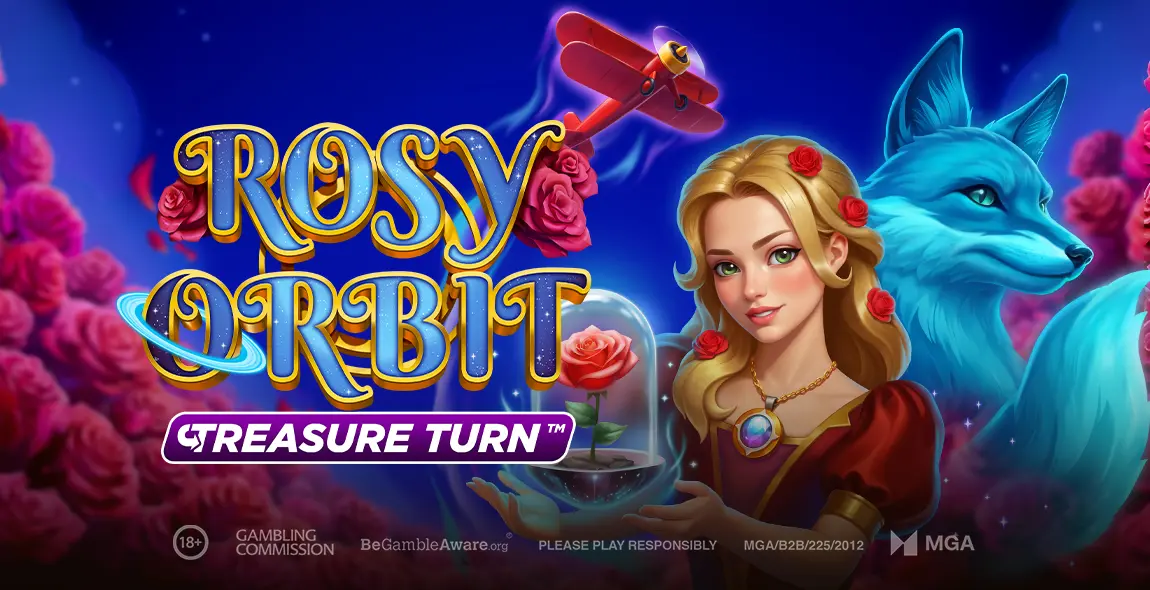
Burning Classics 2 is here to ignite your winnings with all the fiery thrills of the original, plus even hotter rewards. The sequel to Booming Games’ most popular game, Burning Classics, keeps the classic 5×3 grid and 20 variable paylines, along with the iconic stacked symbols, including stacked wilds.
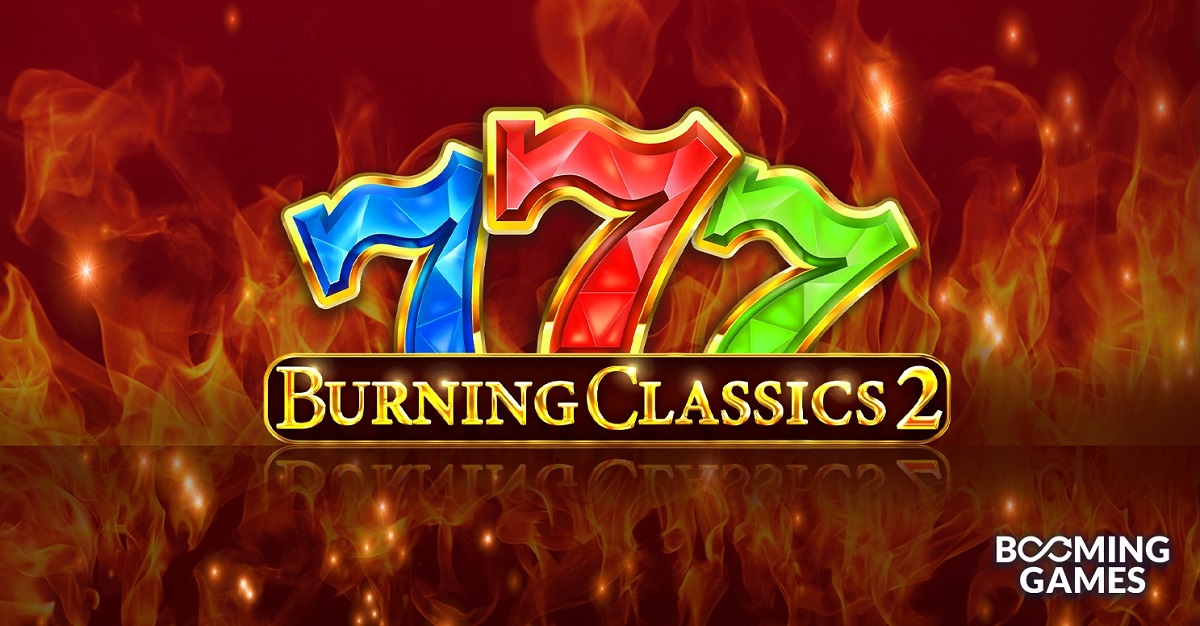
Blueprint Gaming™ takes one of its strongest internationally performing series to new heights in Cash Strike Hotstepper 2, with Super Strike and mystery symbols among the new additions designed to elevate the gameplay experience on offer.
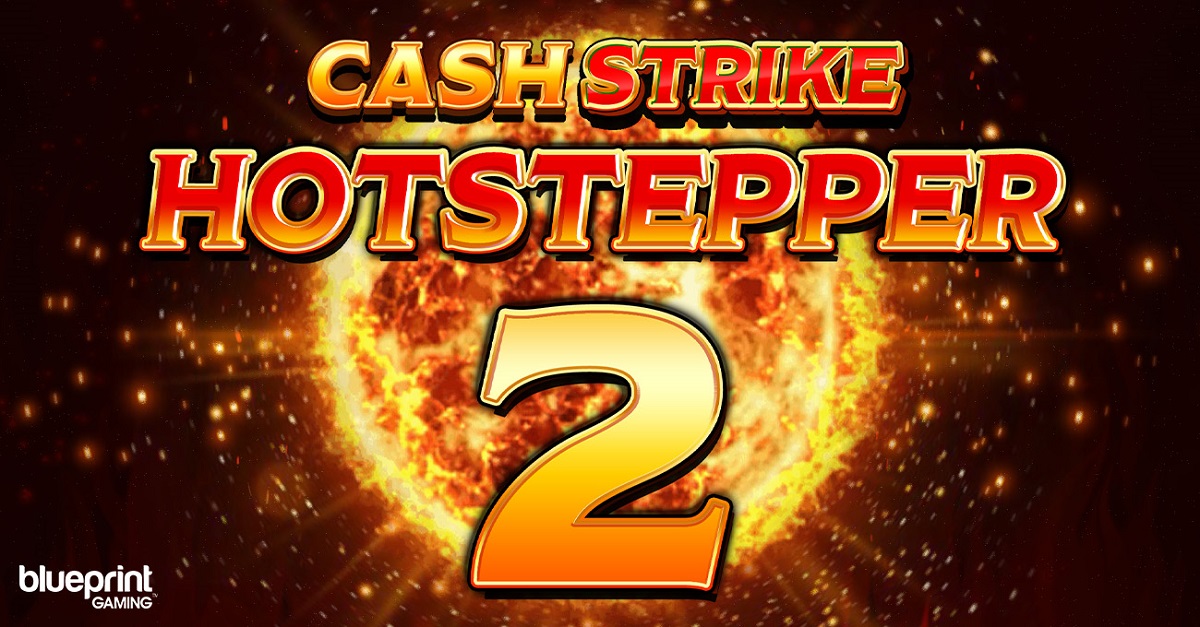
BGaming is excited to announce the launch of Bonanza Trillion, the highly anticipated sequel to the hit slot, Bonanza Billion. The game builds on the success of its predecessor while also upping the ante with a range of captivating features, enhanced visuals, and higher volatility. Bonanza Trillion upgrades the classic fruit and crystal theme that players loved from the original title.
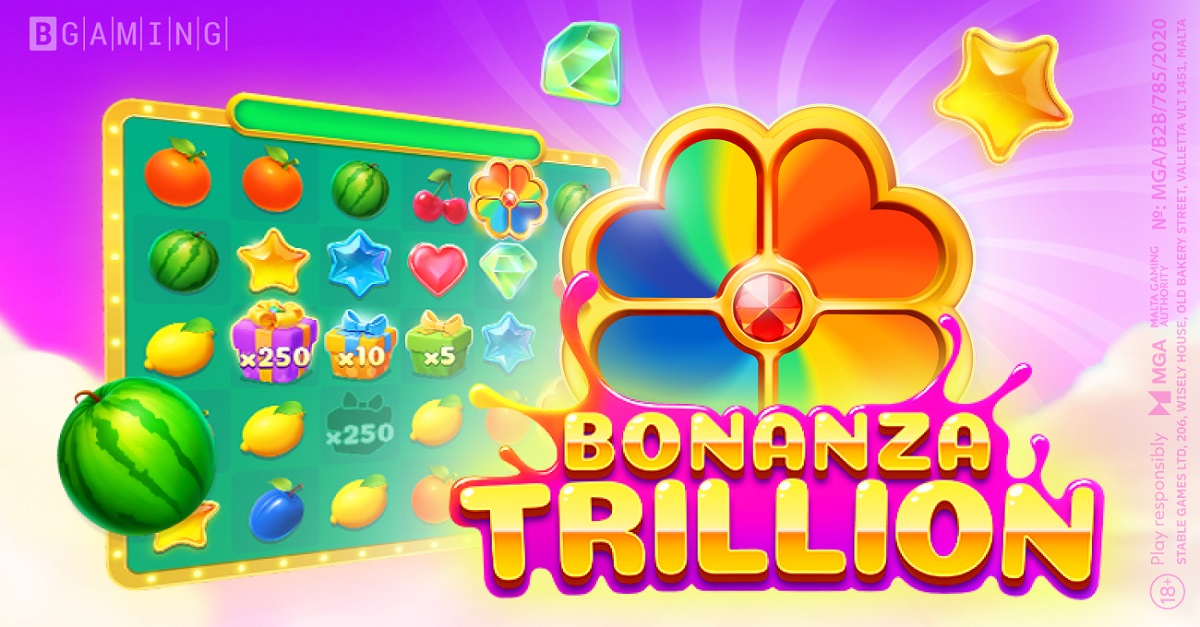
Step into the heart of the untamed frontier in Bison Moon – Power Combo, a slot from Northern Lights Gaming that captures the rugged beauty and boundless thrill of the Great Plains with plenty of big wins in store. This action-packed slot introduces the provider’s latest mechanic, Power Combo, where three unique Scatters unlock incredible bonus features via its proprietary Link&Win feature.
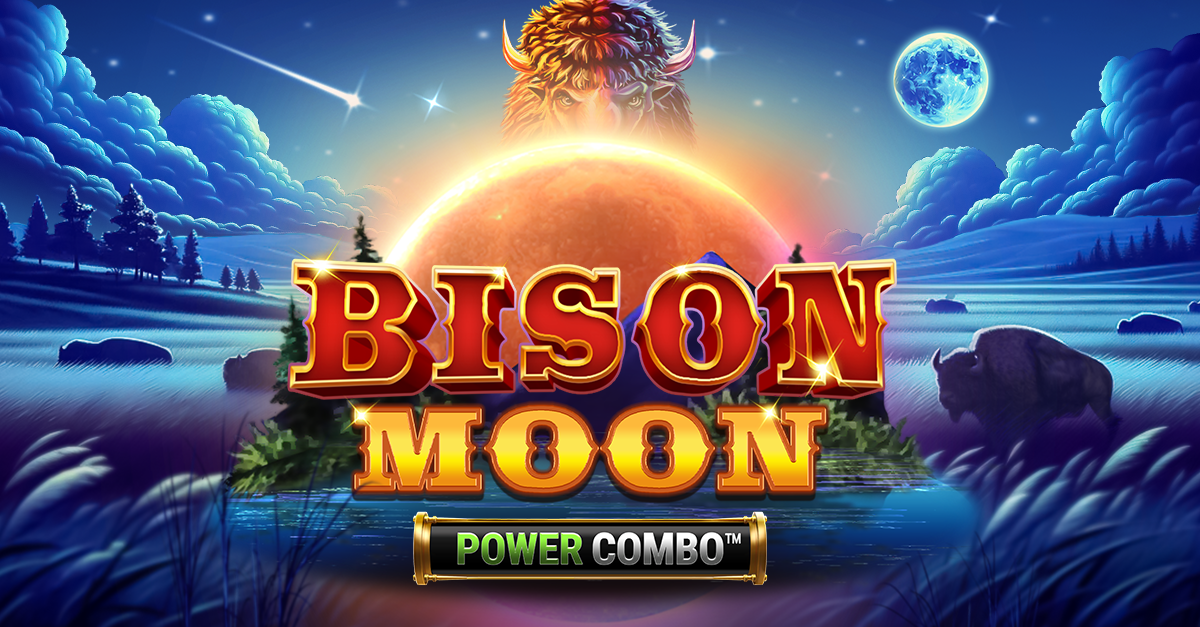
The vast plains are alive with the sound of rampant hooves, the roar of predators, and helpful animals along the way. ELA Games proudly presents its latest release, Buffalo Force, an energetic game that celebrates the sheer power of nature.
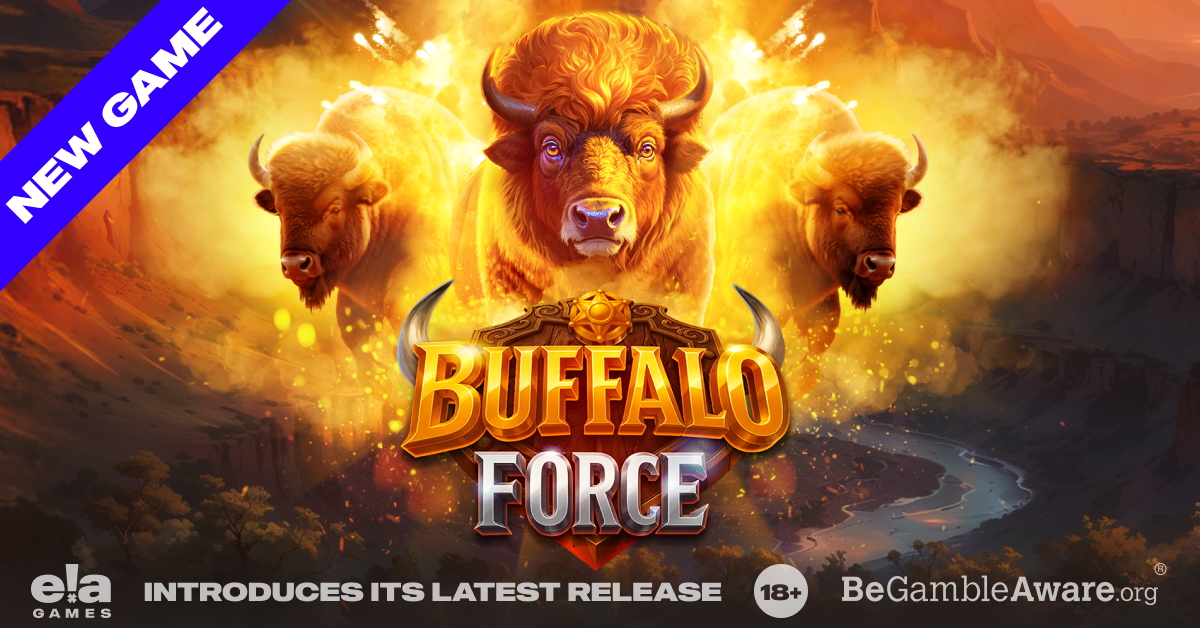
Spinomenal is welcoming players to ascend to Valhalla with its latest mythology-inspired slot, Majestic Odin. The game joins Spinomenal’s hugely popular Demi Gods series. Majestic Odin is set against a breathtaking Nordic landscape of towering mountains, deep fjords, and glowing torches that frame the game with mythic grandeur.
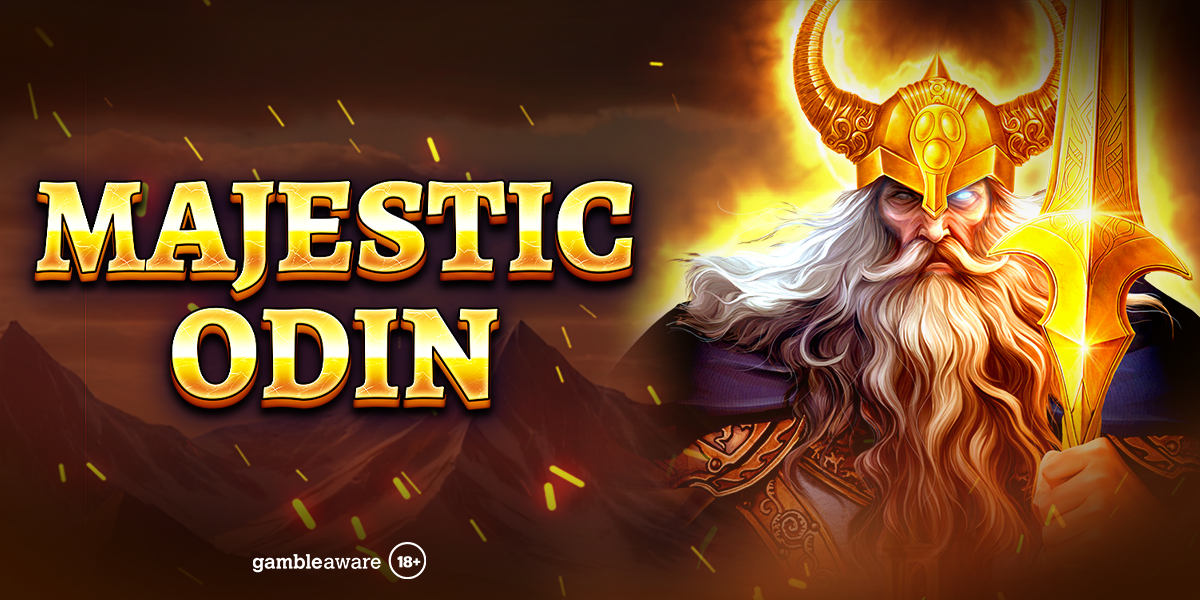
The post Week 37/2025 slot games releases appeared first on European Gaming Industry News.
FBM
FBM® adds a new hero to its slots collection with Hippo’s Lock™ launch in Mexico
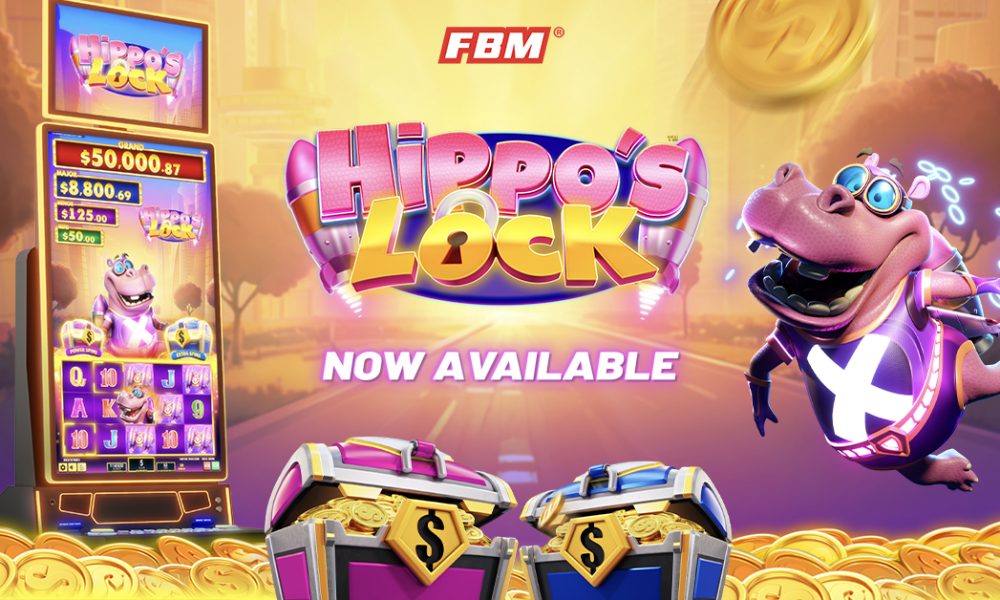
Time to power up your spins and collect big wins with Hippo’s Lock in Mexico. The new slot adventure launched by FBM® has Super Hippo as a hero, delivering entertaining gaming sessions with the Lock Feature, the Power Spins and Extra Spins accumulators. The game is available to play on the Auria, Galaxy II and Shadow III casino cabinets and is set for a fast expansion in the Mexican gaming market.
in Mexico. The new slot adventure launched by FBM® has Super Hippo as a hero, delivering entertaining gaming sessions with the Lock Feature, the Power Spins and Extra Spins accumulators. The game is available to play on the Auria, Galaxy II and Shadow III casino cabinets and is set for a fast expansion in the Mexican gaming market.
Hippo’s Lock is the latest slot title developed by FBM and brings a new theme with a charismatic hero, equipped with gadgets and special powers which will attract and engage slot players in Mexico.
The 30-lines game works with 15 independent reels, and the main action happens around the central position with Super Hippo’s intervention. The purple hippo guides the game narrative, taking players on an exciting gaming journey with non-stop action, suspense, and compelling animations.
The “X” effect of Power Spins joins the lucrative Extra Spins
Every time Super Hippo lands on the central reel, he bites the lock symbols and creates the chance to open the bonus mode with Power Spins, Extra Spins or the two accumulators combined.
When the Hippo’s Lock bonus starts with one accumulator, players guarantee five free spins. This number increases to ten free rounds if Super Hippo triggers Power Spins and Extra Spins at the same time. Each one of the accumulators has a special power:
- Extra Spins – Super Hippo uses its backpack to shoot lasers, increasing the number of free spins displayed in the counter.
- Power Spins – Super Hippo multiplies all coins, bags, Mini and Minor jackpots by 2, 3 or 5, leading players to a significant prize.
Super Hippo remains in the central position during all bonus rounds, and the special powers of the accumulators activated may repeat several times until the bonus rounds are over.
A kit of jackpots and gadgets to achieve big wins!
The bonus ignited by the Lock feature concentrates Super Hippo’s main powers. However, the game character has more tricks and resources to captivate and involve players:
- Jackpots – Hippo’s Lock offers access to four jackpot levels – Mini, Minor, Major, and Grand – through the vault symbol, which may appear on the reels during the main game or bonus rounds.
- Rewind – What if a gadget could change the symbols on the reels and lead players to bigger wins? That is the magic of the Rewind Feature activated by Super Hippo using its bracelet.
- Luck Has Arrived – Super Hippo announces a special flight on the screen with a message and takes off anticipating a lucrative game round for the player.
A slot game compatible with several casino cabinets and layouts!
Hippo’s Lock combines a fascinating game mechanic with an appealing feature set exhibited by an intriguing character through cutting-edge graphics, animations, and sound effects. This blend captures the interest of first-time players, delivering enjoyable gaming sessions that encourage them to return for more.
Hippo’s Lock reinforces the Lock product line FBM debuted this year with the Croc’s Lock theme launch. This new game title introduces a new hero, a new accumulator, and new thrills to the gaming sessions delivered by the global gaming brand’s slots portfolio.
Available on the Galaxy II, Auria and Shadow III casino cabinets, Hippo’s Lock starts its expansion journey in Mexico and intends to surpass the high expectations of local slot fans with long-lasting gaming sessions filled with prizes and adrenaline. The following plans include a global expansion having the US as the next showcase market for this FBM casino game.
The post FBM® adds a new hero to its slots collection with Hippo’s Lock™ launch in Mexico appeared first on Gaming and Gambling Industry in the Americas.
-

 gaming3 years ago
gaming3 years agoODIN by 4Players: Immersive, state-of-the-art in-game audio launches into the next generation of gaming
-
EEG iGaming Directory9 years ago
iSoftBet continues to grow with new release Forest Mania
-
News8 years ago
Softbroke collaborates with Asia Live Tech for the expansion of the service line in the igaming market
-
News7 years ago
Super Bowl LIII: NFL Fans Can Bet on the #1 Sportsbook Review Site Betting-Super-Bowl.com, Providing Free Unbiased and Trusted News, Picks and Predictions
-
iGaming Industry8 years ago
Rick Meitzler appointed to the Indian Gaming Magazine Advisory Board for 2018
-
News7 years ago
REVEALED: Top eSports players set to earn $3.2 million in 2019
-
iGaming Industry8 years ago
French Senator raises Loot Boxes to France’s Gambling Regulator
-
News7 years ago
Exclusive Interview with Miklos Handa (Founder of the email marketing solutions, “MailMike.net”), speaker at Vienna International Gaming Expo 2018







